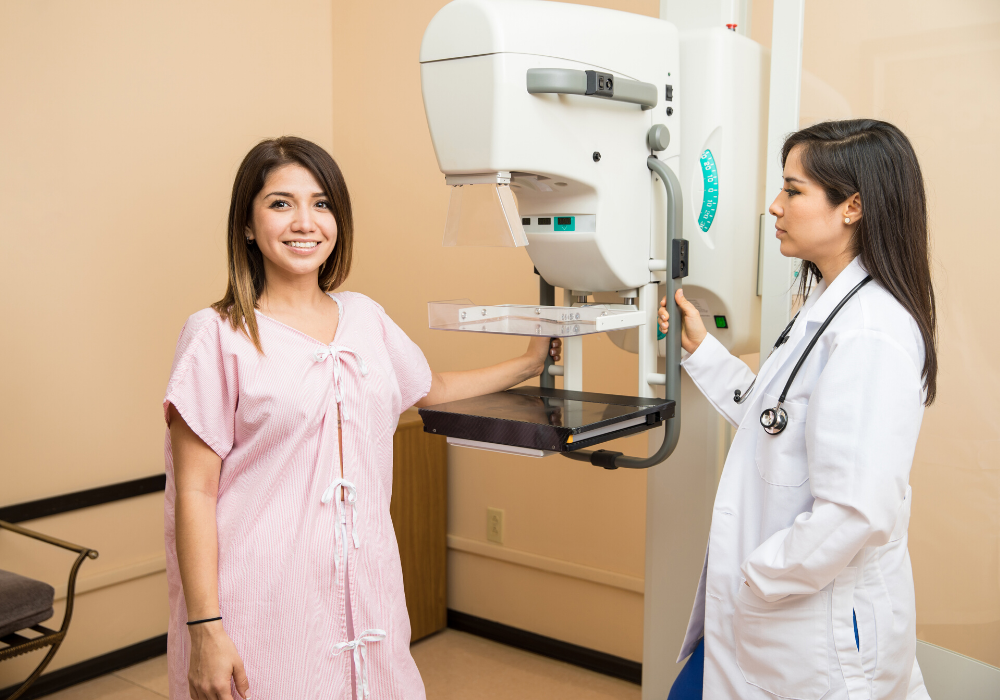
As we’re coming off Breast Cancer Awareness Month, it’s important that people take the necessary precautions all year round to check for signs and symptoms of breast cancer. One of the most common screening tests performed on individuals is mammography. These are the questions we most commonly get about screening tests and mammography.
What is mammography?
Mammography is the primary tool used to detect and screen for breast cancer and other problems in that area of the female body. Mammography uses x-ray technology to view the interior of the breasts and create an image called a mammogram. A physician called a radiologist will then read and interpret those images.
Mammography is done for one of two reasons:
- It can be used as a screening test to check for breast cancer in women who have no signs or symptoms of the disease.
- It may be used as a diagnostic test to check lumps or other symptoms that have been found either in a self-breast exam or by an OBGYN or other health care provider.
How do I prepare for a mammogram?
Day of your test, you should not wear any lotions, deodorants, or powders. These products have substances within them that can show up on the X-ray as irregular conditions or make the mammogram hard to read.
What is the mammogram process?
A mammogram requires that you completely undress from the waist up and put on a gown. You may be asked to stand in front of an X-ray machine and one of your breasts may be placed between two flat plastic plates. This will result in firm pressure being applied on your breast as the plate will flatten your breast as much as possible so that the most amount of tissue is visible. These steps will be repeated on the other breast as well.
What is breast density?
When breasts are dense, they have more of the fibrous tissue and less of the fat that gives breasts their shape. Breast density is a common thing to find on a mammogram, but it can make it harder for the radiologist to read the mammogram and detect breast cancer. If your report says that you have dense breasts, your healthcare provider may discuss other screening options for you in addition to mammography.
When should I start getting mammograms?
Women with an average risk of breast cancer – meaning they have none of the risk factors associated with high risk such as a family history of breast cancer, BRCA1 and BRCA2 mutations, and chest radiation treatments at a young age – are recommended to have screening mammography every year beginning at the age of 40.
For more information, read our guide on the most common questions we get about gynecology including information on mamograms.

Written By Tidewater Physicians For Women


828 Healthy Way Unit 330
Virginia Beach, VA 23462
Fax: 757-467-0301
844 Kempsville Road #208
Norfolk, VA 23502
Fax: 757-461-0836
Appointments:
757-461-3890
Inquiries:
757-461-3890
Notice of Privacy Practices
Notice of Financial Policies

© Tidewater Physicians for Women